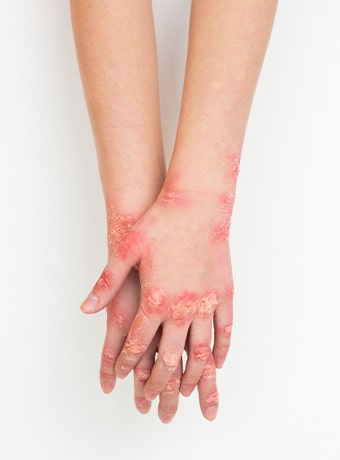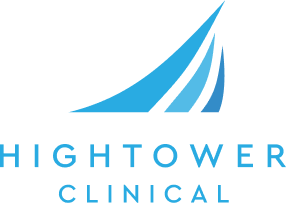Psoriasis clinical trials are research studies that evaluate new medications, treatments, or devices for psoriasis. They help determine if these interventions are safe and effective for managing psoriasis symptoms.
Psoriasis Clinical Trials in Oklahoma City, OK
Psoriasis clinical trials, where your involvement will contribute to better health outcomes.
Enroll Now
Dealing with Psoriasis Symptoms?
Discover how a clinical research study could offer hope for the millions of adults facing similar challenges.
Psoriasis, a prevalent skin condition, manifests as red, scaly, and itchy patches on the skin. These raised patches commonly emerge on the scalp (known as scalp psoriasis), elbows, and knees. If you’ve been diagnosed with this condition, you could qualify for a psoriasis clinical trial, potentially offering relief from your symptoms.
We’re conducting an observational study to evaluate the safety of approved psoriasis therapies in people with psoriasis.
*Participation in the Clinical Trial is completely free of cost and is your choice.
**To participate, fill out the form, and someone from our research staff will call you to determine your eligibility for the Clinical Research Study.
About Psoriasis Clinical Trials in Oklahoma City, OK
The primary objective of this study is to examine the comparative safety of approved psoriasis therapies in dermatologist-treated patients. This involves assessing adverse event incidence and nature, including malignancy, in a real-world population. Secondary objectives encompass analyzing disease epidemiology, natural progression, comorbidities, treatment practices, and comparative effectiveness.
Should you choose to participate, the study doctor will provide detailed information about the study, outlining your responsibilities such as attending study visits and utilizing the provided e-Diary. It’s essential to be accurate about your medical history, both past and present.
*All study procedures and study-related treatment, including the investigational drug, are free of cost, and insurance is not required to participate.
*The study doctor will take you through every step of the Clinical Trial before you decide to participate and will answer any questions you have about the study treatment.
Psoriasis Research: What to Expect?
If you have plaque psoriasis and are interested in participating in a research study, please complete the above form. A research team member will contact you to discuss your potential eligibility for the study. If you are deemed eligible, you may be invited to visit the nearest research site for further screening.
You’ll be asked to review and sign an Informed Consent Form as part of the screening process. Before signing, the study doctor will provide a comprehensive explanation of the study, including details about the psoriasis treatment being investigated, potential risks and benefits, and expectations for study visits. We encourage all participants to ask questions and ensure they fully understand the information provided before signing the form.
Participation in Hightower Psoriasis Clinical Trials in Oklahoma is entirely voluntary, and participants can withdraw at any time.
*Study-related care is offered at no charge. Expert physicians and healthcare professionals conduct thorough physical exams and assessments. *


Age
18 Years and older
Gender
Male & Female
Condition
Psoriasis
Current Status
Recruiting
What happens in psoriasis?
Psoriasis is a chronic autoimmune disease that affects the skin. It causes raised, red, and scaly patches that can appear anywhere on the body, but most commonly on the elbows, knees, scalp, and lower back. While not contagious, psoriasis can be a frustrating and sometimes painful condition.
Complications
- Psoriatic arthritis: As mentioned above, psoriasis can lead to psoriatic arthritis, a form of inflammatory arthritis that affects the joints.
- Increased risk of heart disease: Studies have shown a link between psoriasis and an increased risk of heart disease, stroke, and high blood pressure.
- Depression and anxiety: The chronic nature of psoriasis and the impact it has on appearance can lead to depression and anxiety.
- Social isolation: Due to the visibility of the condition, some people with psoriasis may withdraw from social activities due to self-consciousness.
Who is at risk
- Genetics: A family history of psoriasis increases your risk.
- Immune system dysfunction: An overactive immune system plays a role in psoriasis.
- Environmental triggers: Stress, infections, certain medications, and smoking can trigger or worsen psoriasis outbreaks.
- Obesity: Being overweight or obese can increase the risk and severity of psoriasis.
Symptoms
- Red, inflamed patches of skin: These patches are often covered with silvery white scales.
- Itchiness: The affected areas can be intensely itchy, making it difficult to sleep and concentrate.
- Burning sensation: Some people experience a burning sensation along with itchiness.
- Cracked or bleeding skin: Psoriasis can cause the skin to dry and crack, leading to bleeding.
- Stiffness and joint pain: In some cases, psoriasis can affect the joints, causing pain, stiffness, and swelling (psoriatic arthritis).
Frequently Asked Questions
What happens if I want to withdraw from the trial?
You can withdraw from the trial anytime, for any reason, without penalty.
How will my safety be ensured during the trial?
The safety of participants is a top priority. A team of experts closely monitors all clinical trials, and you will have the opportunity to report any side effects or concerns.
Is participation in psoriasis clinical trial voluntary?
Yes, participation in a clinical trial is entirely voluntary, and participants can withdraw from the study at any time without penalty. Individuals considering participation should carefully review the study information, ask questions, and make an informed decision with the guidance of the study team.




